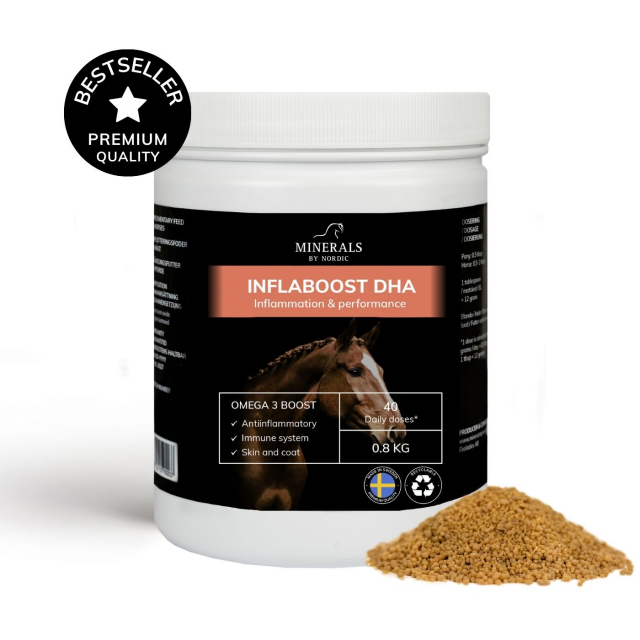Stomach ulcers in horses
Symptoms of stomach ulcers in horses
Stomach ulcers can be difficult to detect because horses often show subtle signs of discomfort. Common symptoms include:
Weight loss: Unexplained weight loss can be a sign.
Colic: Recurring mild colic may indicate stomach ulcers.
Behavioral changes: Horses may become irritable, lethargic, or show signs of discomfort when saddled.
Poor coat: A dull and rough coat can also be a sign.
Reduced performance: Decreased stamina and unwillingness to work may be related to stomach ulcers.
Treatment of stomach ulcers in horses
Treatment of stomach ulcers in horses often involves a combination of medical treatment prescribed by a veterinarian and changes in feeding and management. Examples of treatment methods include:
Mucosal protectants: Such as sucralfate, which helps protect the stomach lining.
Good feed for horses with stomach ulcers
Providing the right supplements can help support horses with sensitive stomachs. Here are some supplements that can be beneficial:
Prebiotics: Help maintain a healthy gut flora and can improve digestion. They promote the growth of good bacteria in the gut. Natural sources of prebiotics can be found in Pur.mash.
Omega-3 fatty acids: Have anti-inflammatory properties that can help reduce inflammation in the stomach and intestines.
Reducing grains for horses with stomach ulcers and sensitive 'stomachs
Reducing grains for horses with stomach ulcers and sensitive stomachs can be beneficial for several reasons:
Lower risk of fermentation in the gastrointestinal tract: Grains can cause fermentation in the horse's intestines, leading to gas, colic, and an imbalance in gut flora. For horses with sensitive stomachs or ulcers, this can worsen their condition.
Reduced pressure on the stomach lining: High grain intake can increase pressure on the stomach lining, which can worsen existing ulcers or further irritate the stomach. Reducing grains can help alleviate this pressure.
Preventive Measures Preventive measures are key to reducing the risk of stomach ulcers in horses. Here are some tips:
Regular meals: Feed the horse frequently and in small amounts to avoid long periods without food.Forage: Provide access to forage like hay or grass, which stimulates saliva production and helps neutralize stomach acid.
Minimize stress: Stress can increase the risk of ulcers, so ensure the horse has a calm and stable environment.
Avoid large amounts of grain: Grains can increase the production of stomach acid.
By being aware of the symptoms, providing appropriate treatment, and offering the right supplements, you can help your horse avoid and recover from stomach ulcers.

 SWE
SWE

 ENG
ENG NO
NO AX
AX DE
DE